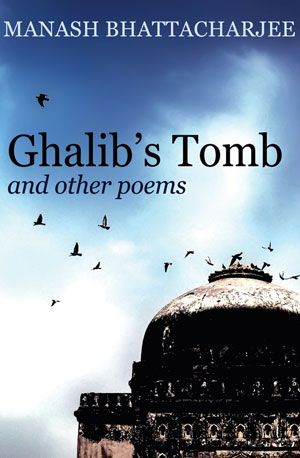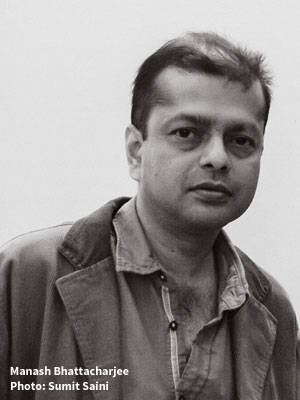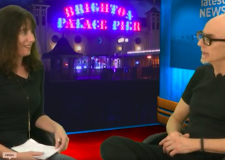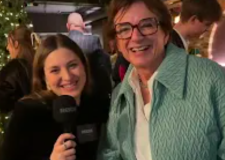Vanessa Austin Locke: Overheard on Helicon
Arts and culture from around the world, with Vanessa Austin Locke
Dear Readers, I’ve grown up. This means that a) I don’t have any more titillating stories for you, or b) my stories are simply too titillating to print in this publication. Either way, it is with great pleasure that I introduce the first of a new column of discovery, focusing on local, national and international arts and culture.

For our first adventure I want to take you to India, where Manash Bhattacharjee’s debut collection of verse, Ghalib’s Tomb and other poems, eulogises (as the title suggests) dead poets, and in doing so, brings them back to life. He dispels the intoxicating mythology of that country, whilst at once creating a new one. And he swathes the reader with sensuality (Wedding in Muvattupuzha), only to mock them with a sluice of cold water as their eyes begin to roll back in their heads (The Veil).

This wide-awake poetry of complexity and contradiction sees beyond the common aims, the zeitgeist, and the interminably clichéd life-lessons we are drilled with daily, to patchwork together fragments through history and through story that create a new path for us to follow. Poet in Delhi is a love song to that city in the truest sense – full of bitterness, disappointment, supplication and cynical hope: “Delhi, / I offer my childhood / to / your pigeons. / Delhi, / I rescue the sun / from / your debris.”
From the simple poignancy of Effects of Fetishism, to a surrealist poem entitled The Broken Vase, “where things die securely”, the suckerpunch is sickeningly audible and enjoyed with the full force of poetry’s sadist, to her reader’s masochist.
“This wide-awake poetry of complexity and contradiction sees beyond the common aims”
There are moments of blinding brilliance, that light up the page, the mind and the human experience in that way only poetry can, such as the suggestion in Dissonance that “If you seek wisdom – / Invent yourself a labyrinth / Then find ways of getting lost”. And it’s dissonance that colours this entire collection; the personal dissonance of the poet, the dissonance of love, the dissonance of India, the dissonance of poetry itself.
But if poetry has a tougher time today than ever before, then its vaccination is in its virus. Poetry’s greatest weapon against the age of ADD is its ability to condense a book’s worth of ideas into a single, powerful and impossibly elegant phrase, and Bhattacharjee certainly knows how to wield it.
Ghalib’s Tomb is published by The London Magazine and is available on Amazon. If you have a recommendation for Vanessa to feature, please email: editorial@thelatest.co.uk





















